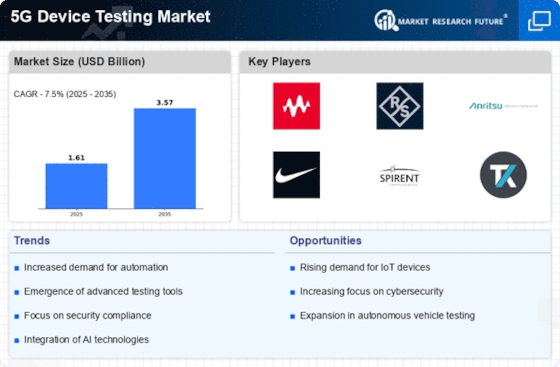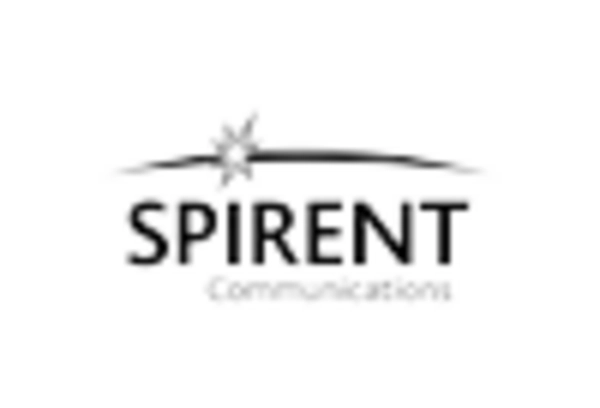Market Trends
Key Emerging Trends in the 5G Device Testing Market
The 5G device testing market is witnessing several key trends that are shaping its trajectory and influencing industry dynamics. One prominent trend is the increasing demand for comprehensive testing solutions to ensure the reliability and performance of 5G devices. As the adoption of 5G technology accelerates globally, there is a growing emphasis on stringent testing protocols to guarantee seamless connectivity, low latency, and optimal user experiences across a diverse range of devices, including smartphones, IoT gadgets, and other connected devices.
The proliferation of IoT devices is another significant trend driving the 5G device testing market. The integration of 5G technology with the Internet of Things has led to an explosion in the number and types of connected devices. This trend presents unique testing challenges, as the diversity of devices requires testing solutions to be adaptable and capable of assessing a wide array of functionalities. The increasing interconnectivity of devices and the need for reliable communication in IoT ecosystems propel the demand for specialized testing services catering to this evolving landscape.
Security testing is emerging as a critical trend within the 5G device testing market. With the rise of cyber threats and the increasing complexity of 5G networks, ensuring the security of devices becomes paramount. The testing of devices for vulnerabilities, authentication mechanisms, and data protection features is gaining prominence. Companies in the 5G device testing market are incorporating robust security testing protocols to address the growing concerns related to cybersecurity, making security testing an integral part of the overall testing process.
Open Radio Access Network (Open RAN) is reshaping the landscape of 5G infrastructure and, consequently, impacting device testing trends. The shift towards Open RAN architecture introduces a more disaggregated and interoperable network environment. Testing solutions must adapt to this change, focusing on ensuring compatibility and performance across diverse components and vendors within the Open RAN ecosystem. As the industry embraces this open and flexible approach to network architecture, testing trends evolve to accommodate the unique challenges posed by Open RAN deployments.
Edge computing is influencing testing trends within the 5G device testing market. The decentralization of computing resources to the network edge requires testing solutions to assess the performance and reliability of devices in edge computing environments. As edge computing becomes more integral to 5G networks, testing services are adapting to evaluate the latency, processing capabilities, and overall efficiency of devices operating at the network edge.
Moreover, the integration of artificial intelligence (AI) in 5G devices is driving testing trends towards more intelligent and automated testing methodologies. AI-powered testing tools enable faster and more efficient testing processes, allowing for the identification of performance issues and potential vulnerabilities in real-time. The trend towards AI-driven testing reflects the industry's recognition of the need for advanced testing solutions to match the sophistication of AI-enabled 5G devices.

















Leave a Comment